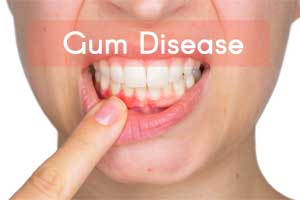- Home
- Editorial
- News
- Practice Guidelines
- Anesthesiology Guidelines
- Cancer Guidelines
- Cardiac Sciences Guidelines
- Critical Care Guidelines
- Dentistry Guidelines
- Dermatology Guidelines
- Diabetes and Endo Guidelines
- Diagnostics Guidelines
- ENT Guidelines
- Featured Practice Guidelines
- Gastroenterology Guidelines
- Geriatrics Guidelines
- Medicine Guidelines
- Nephrology Guidelines
- Neurosciences Guidelines
- Obs and Gynae Guidelines
- Ophthalmology Guidelines
- Orthopaedics Guidelines
- Paediatrics Guidelines
- Psychiatry Guidelines
- Pulmonology Guidelines
- Radiology Guidelines
- Surgery Guidelines
- Urology Guidelines
High BP strongly linked to poor oral health

Therefore all patients of high blood pressure on medicines shall immensely benefit if they have good oral health, according to new research in the American Heart Association's journal Hypertension.
The target blood pressure range for people with hypertension is less than 130/80 mmHg according to the latest recommendations from the American Heart Association/American College of Cardiology.
The researchers analysed and reviewed medical and dental exam records of more than 3,600 people with Hypertension.The scrutiny of records revealed that patients with healthier gums have lower BP and responded better to BP lowering medications, as compared to subjects with gum afflictions and periodontitis.
In the study, patients with severe periodontitis had systolic pressure that was, on average, 3 mmHg higher than those with good oral health. Systolic pressure, the upper number in a blood pressure reading, indicates the pressure of blood against the walls of the arteries. While seemingly small, the 3mmHg difference is similar to the reduction in blood pressure that can be achieved by reducing salt intake by 6 grams per day (equal to a teaspoon of salt, or 2.4 grams of sodium), the researchers said.
The presence of periodontal disease widened the gap even farther, up to 7 mmHg, among people with untreated hypertension, the study found. BP medications narrowed the gap, down to 3 mm Hg but did not completely eliminate it, suggesting that periodontal disease may interfere with the effectiveness of BP therapy.
Please also read-A case of Rumpel-Leede Sign after BP monitoring
The researchers found that people with periodontal disease were 20 percent less likely to reach healthy blood pressure range as compared to patients who had good oral health.Therefore patients with periodontal disease may require closer blood pressure monitoring and also those diagnosed with hypertension with persistently elevated blood pressure, might benefit from a referral to a dentist.
Physicians should pay close attention to patients' oral health, particularly those receiving treatment for hypertension, and urge those with signs of periodontal disease to seek dental care," Pietropaoli said. "Likewise, dental health professionals should be aware that oral health is indispensable to overall physiological health, including cardiovascular status," said study lead investigator Davide Pietropaoli, D.D.S., Ph.D., of the University of L'Aquila in Italy.
"Patients with high blood pressure and the clinicians who care for them should be aware that good oral health may be just as important in controlling the condition as are several lifestyle interventions known to help control blood pressure, such as a low-salt diet, regular exercise and weight control," Pietropaoli said.
The study did not specify how periodontal disease interferes with blood pressure treatment However the results are consistent with research in past that links low-grade oral inflammation with blood vessel damage and cardiovascular risk.

Disclaimer: This site is primarily intended for healthcare professionals. Any content/information on this website does not replace the advice of medical and/or health professionals and should not be construed as medical/diagnostic advice/endorsement or prescription. Use of this site is subject to our terms of use, privacy policy, advertisement policy. © 2020 Minerva Medical Treatment Pvt Ltd